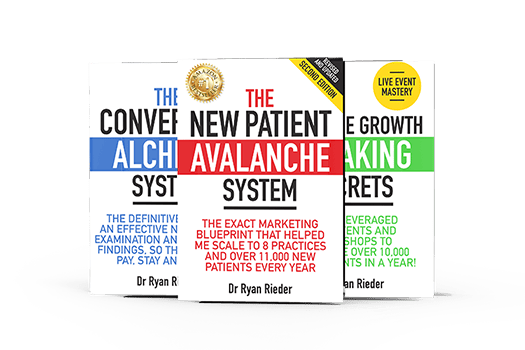
If you’re anything like me, you’ve probably grown weary of hearing certain phrases in your practice. You know the ones:
- “I need to go home and think about it.”
- “I’ll just have this session now and then see how it goes.”
- “Let’s see what my insurance covers and go from there.”
- “I’m so excited—today is my last session.” (At a progress exam!)
If these sound familiar, you’re not alone. But here’s the thing: these phrases are far more telling than they first appear. They’re diagnostic, yes—but not of your patients’ physical issues. They point to a deeper problem in how Day 1 and Day 2 are handled in your practice.
The Cost of Booking One Visit at a Time
When patients approach their care visit by visit, they’re not fully bought into the journey you’re offering. And here’s the kicker: if they’re not bought in, you’re stuck in an exhausting cycle of selling. Every. Single. Time.
Think about it. How can you confidently plan your schedule—or your business—when your diary looks like a blank slate six weeks from now? When patients book one visit at a time, it’s impossible to create long-term plans, whether for their care or your business growth.
But there’s more. A scattered schedule does more than just create logistical headaches; it affects how potential new patients perceive you.
Desperation: The Silent Saboteur
When your schedule is empty, it’s hard not to let that desperation seep into how you communicate. New patients can sense it, even if you don’t say it out loud. They’ll pick up on your subtle need to fill those empty slots, and that energy can push them away instead of drawing them in.
Desperation drives away opportunity—it’s as simple as that. Future booking isn’t just a convenience; it’s a necessity to create stability and confidence in your practice.
The Fix: Create Commitment Early
The key to breaking free from this cycle lies in those crucial first interactions with patients. Day 1 and Day 2 aren’t just about assessing and diagnosing; they’re your opportunity to create trust, set expectations, and inspire commitment. When done well, these initial encounters can transform how patients view their care.
Help them see the bigger picture. Educate them about why consistent care is essential—not just for short-term relief, but for long-term health and transformation. When patients understand the value of staying the course, they’re more likely to future-book and stay committed to their care plan.
A Better Path Forward
If you’re tired of hearing those frustrating phrases, it’s time to take a hard look at your processes. Are you clearly communicating the value of a comprehensive care plan? Are you creating urgency and inspiration during Day 1 and Day 2?
When you master these elements, you won’t have to constantly resell the idea of care. Your diary will fill with committed patients who see the value in planning ahead—and your practice will thrive because of it.
Love and light,
Ry





